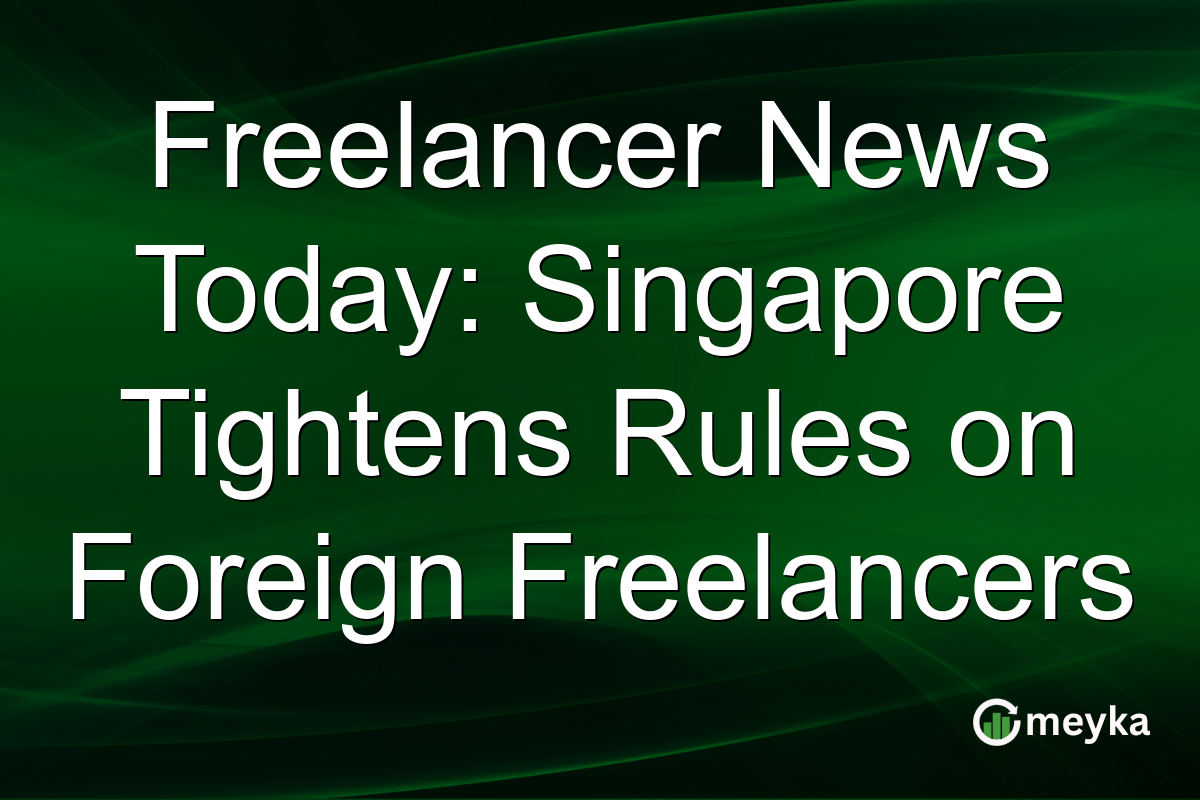Freelancer News Today: Singapore Tightens Rules on Foreign Freelancers
Today, Singapore’s Ministry of Manpower (MOM) announced new regulations that could significantly impact foreign freelancers. As the gig economy continues to grow, these changes aim to balance both local and foreign participation. Understanding the implications of such regulations is crucial for those involved in Singapore’s vibrant gig scene. Let’s delve into what these new rules mean for international freelancers in Singapore.
Understanding the New Regulations
The MOM has been working towards tightening the rules surrounding foreign freelancers. These changes require stricter compliance with work pass requirements. The reason for these regulations is to ensure fair competition and maintain compliance in Singapore’s gig economy. With more locals entering the freelance market, the government is keen on providing a level playing field while ensuring that regulatory standards are upheld. Foreign freelancers now must ensure they meet specific criteria to continue operating in Singapore. This includes holding valid work passes and adhering to MOM freelancer regulations. Failure to meet these requirements could result in significant penalties, including fines and deportation. The new rules may initially seem stringent, yet they are part of a broader effort to integrate foreign and local talent harmoniously in Singapore’s economy.
Impact on the Singapore Gig Economy
The shift in regulatory focus highlights Singapore’s evolving gig economy. As more people choose to freelance, the competition has increased drastically. These new rules could potentially reduce the number of foreign freelancers, allowing more opportunities for local talent. But what does this mean for the overall market? Singapore’s gig economy has been a robust part of its financial ecosystem, supporting industries from tech to creative arts. By tightening regulations, the MOM aims to prevent market saturation, ensuring that local freelancers can thrive. However, businesses reliant on foreign talent might find these changes challenging. While local freelancers stand to benefit from decreased competition, companies may struggle to access specialized skills that are often found among foreign freelancers, altering the industry dynamics.
The Role of Work Pass Requirements
Foreign freelancers must navigate the complex web of work pass requirements. To comply with these new regulations, they need a valid Employment Pass, S Pass, or Work Permit. Each of these passes has distinct eligibility criteria, affecting who can legally freelance in Singapore. Under the new rules, MOM freelancer regulations emphasize compliance more strictly than ever before. Freelancers need to demonstrate their contributions to the economy and abide by the legal frameworks provided. Understanding these requirements is crucial for anyone looking to operate independently in this competitive landscape. These measures seek to control the flow of foreign talent into Singapore, prioritizing those who align with the nation’s economic goals.
Future of Freelancing in Singapore
Looking ahead, how these regulations shape the future of freelancing in Singapore remains to be seen. With the government taking a firm stance on regulation, the gig economy may undergo significant transformation. While some argue that these rules could stifle creativity and innovation, others suggest they are necessary to ensure fairness. It’s essential to consider how businesses and freelancers can adapt. Embracing technology and innovation becomes crucial, offering unique solutions and services that differentiate them from local competitors. For instance, freelancers might utilize platforms like Meyka to gain insights into market trends, aiding in strategic planning and execution. Singapore will likely continue to balance nurturing local talent while allowing just the right amount of foreign competition. This approach is vital in maintaining its reputation as an economic powerhouse in Asia.
Final Thoughts
The tightening of regulations on foreign freelancers by Singapore’s Ministry of Manpower represents a significant shift in the gig economy landscape. While these changes may present new hurdles, they also offer opportunities for local freelancers to thrive. For businesses and freelancers to succeed amidst these changes, understanding and adapting to the new regulatory framework is key. As Singapore continues to innovate in its approach to the gig economy, platforms like Meyka can provide invaluable support, offering real-time data to navigate these complex changes effectively.
FAQs
Foreign freelancers need to comply with stricter work pass requirements, ensuring they have valid permits such as Employment Pass, S Pass, or Work Permit. These regulations are part of MOM’s efforts to ensure fair competition and compliance in the freelance market.
Local freelancers may benefit from reduced competition due to stricter controls over foreign freelancers. This could open up more opportunities and allow for a more balanced and sustainable gig economy.
Businesses may face challenges accessing specialized skills previously available through foreign freelancers. They will need to adapt by possibly investing more in local talent or focusing on alternative solutions through technology and innovation.
Disclaimer:
This is for information only, not financial advice. Always do your research.






